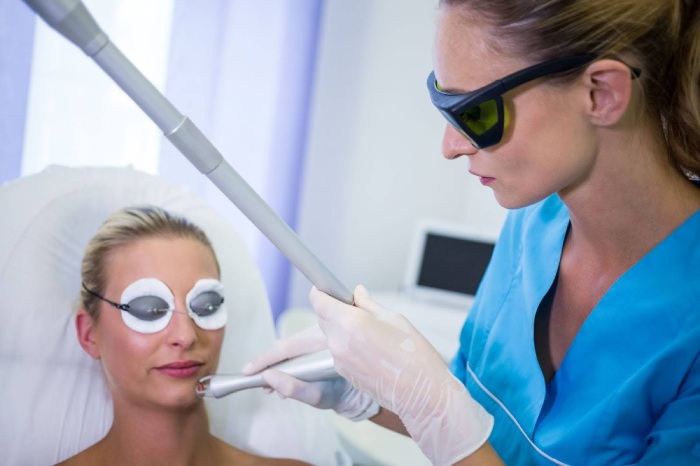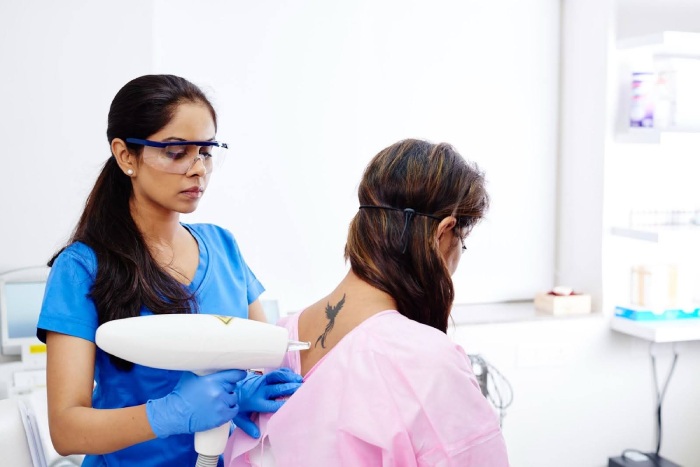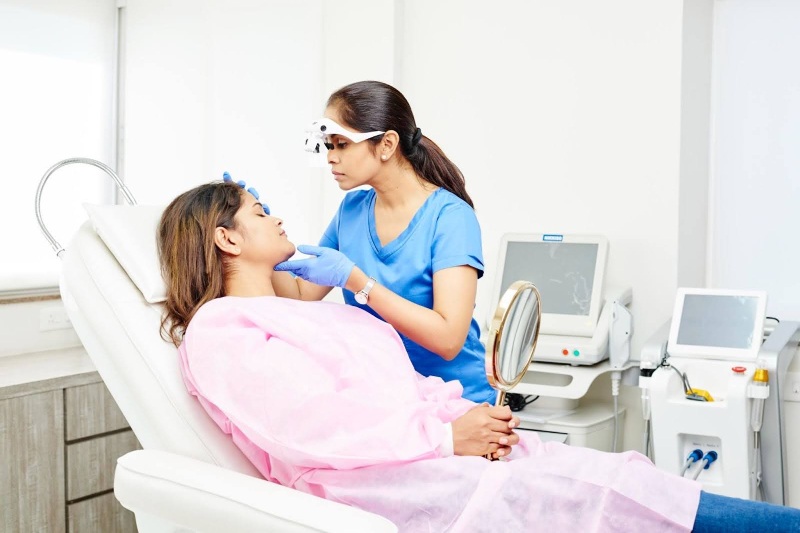Laser treatments for skin pigmentation issues of laser pigmentation removal have become extremely popular lately. The best dermatologist Pune offer a non-invasive way to handle skin problems like sunspots, melasma, age spots, acne pigmentation and other post inflammatory pigmentation. However, there are tons of myths surrounding these treatments. Let’s break down some common misunderstandings & share the real facts about pigmentation lasers.
You See Results instantly
While lasers can really help with pigmentation problems, don’t expect results to appear instantly. Sometimes during laser dark spot removal the treated spots may darken first before they start lightening up over a few days or weeks as your skin heals naturally. And getting the look you want will need more than one session based on how severe the pigmentation is.
Laser Pigmentation Removal Treatments are painful
Sure, these laser treatments can cause some discomfort, but saying they are really painful is often an exaggeration. Most people say it feels like a rubber band snapping against their skin or a tingling. Plus, many new laser machines come with cooling systems to help ease that discomfort. Within the first couple of sessions, Once you are familiar with the sensation, it is hardly a discomfort !
Laser Treatments will worsen Pigmentation
This idea might come from seeing post-inflammatory hyperpigmentation (PIH), which can happen if you’re not being treated by a qualified Dermatologist ir the laser being used is a substandard one. When done by a skilled professional, lasers aim to reduce pigmentation, not make it worse! Following aftercare advice from your dermatologist—like using sunscreen—is super important for keeping PIH away & getting the best results, especially when it comes to hyperpigmentation in black skin.
Pigmentation can be permanently treated
Laser pigmentation removal treatments can help reduce or remove pigmentation, but that doesn’t mean new spots won’t appear later on. Things like sun exposure & hormonal changes can lead to new pigmentation. Following a good skincare routine—especially using sunscreen—is crucial for maintaining those laser treatment results, even if the best laser for pigmentation is used.

Only People with Fair Skin Can undergo Laser Treatments
Thanks to advancements in technology, lasers are now safer for many different skin types! Early on, some lasers worked best on lighter skin due to risks like burns or hyperpigmentation in darker skin tones. But now lasers like Nd:YAG and Pico can treat darker skin safely too! Always consult with a dermatologist who knows how to work with various skin types for great results for laser dark spot removal.
Laser Treatments Aren’t Safe
When done by a qualified professional, laser treatments are typically safe! The most important part is finding someone who understands different laser technologies and various skin types well. That way, risks—like burns or scarring—are minimized with tailored treatments just for you. Going with a qualified Dermatologist, almost always guarantees the use of good standard laser equipment. This will also minimize complications in skin pigmentation removal.
Lasers Can Fix Every Skin Problem
Although lasers are fantastic for treating various pigmentation issues, they’re not a fix-all for every skin condition out there! Serious concerns like deep wrinkles or bad acne scars might need different methods or extra treatments combined with laser therapy too. A dermatologist can guide you in figuring out the best way to approach multiple skin challenges.
DIY Laser Machines Work Just as Well as Professional Ones

Those over-the-counter laser devices might seem cheap & easy to use but don’t be fooled—they’re not as powerful as professional-grade ones! These DIY devices often can’t penetrate deeply enough to treat pigmentation effectively. Plus, if they’re not used correctly, they could even damage your skin. Getting treated by professionals means better safety and effectiveness!
All Lasers Are Basically the Same
There are so many types of lasers out there! Each one is designed to tackle different skin issues. For example, there are Q-switched lasers, fractional lasers, & Pico lasers aimed at specific kinds of pigmentation. Meeting with a dermatologist is key in figuring out which laser works best for your skin pigmentation.
Recovery Time After Laser Treatments is the same for all laser treatments
While many laser procedures are made to be low on invasiveness, they usually require some recovery time afterward. How much time you need depends on the type of laser used & how your skin responds to the treatment. Some stronger treatments might cause redness that could last several days, but you must remember that this is a part of the treatment response and not a reaction or side effect. Following post-care instructions is pertinent for healing well & getting those amazing results!
Conclusion
Laser treatments offer hopeful solutions for many people looking to boost their skin’s appearance ! But being aware about these procedures is essential for setting realistic hopes and achieving great results. By clearing up these common myths, I want to give you a better understanding of what pigmentation lasers can or cannot do—for you. Always consult with an experienced dermatologist about your unique needs so they can create a personalized treatment plan for you!







